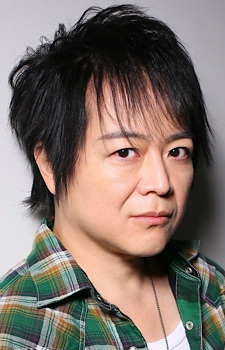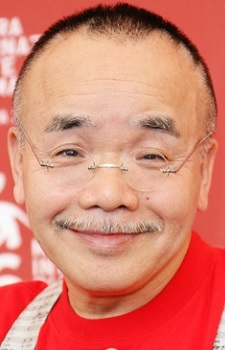
Monster
Summary: Dr. Kenzou Tenma, an elite neurosurgeon recently engaged to his hospital director's daughter, is well on his way to ascending the hospital hierarchy. That is until one night, a seemingly small event changes Dr. Tenma's life forever. While preparing to perform surgery on someone, he gets a call from the hospital director telling him to switch patients and instead perform life-saving brain surgery on a famous performer. His fellow doctors, fiancée, and the hospital director applaud his accomplishment; but because of the switch, a poor immigrant worker is dead, causing Dr. Tenma to have a crisis of conscience.
So when a similar situation arises, Dr. Tenma stands his ground and chooses to perform surgery on the young boy Johan Liebert instead of the town's mayor. Unfortunately, this choice leads to serious ramifications for Dr. Tenma—losing his social standing being one of them. However, with the mysterious death of the director and two other doctors, Dr. Tenma's position is restored. With no evidence to convict him, he is released and goes on to attain the position of hospital director.
Nine years later when Dr. Tenma saves the life of a criminal, his past comes back to haunt him—once again, he comes face to face with the monster he operated on. He must now embark on a quest of pursuit to make amends for the havoc spread by the one he saved.
[Written by MAL Rewrite]
Description
Dr. Kenzou Tenma, an elite neurosurgeon recently engaged to his hospital director's daughter, is well on his way to ascending the hospital hierarchy. That is until one night, a seemingly small event changes Dr. Tenma's life forever. While preparing to perform surgery on someone, he gets a call from the hospital director telling him to switch patients and instead perform life-saving brain surgery on a famous performer. His fellow doctors, fiancée, and the hospital director applaud his accomplishment; but because of the switch, a poor immigrant worker is dead, causing Dr. Tenma to have a crisis of conscience.
So when a similar situation arises, Dr. Tenma stands his ground and chooses to perform surgery on the young boy Johan Liebert instead of the town's mayor. Unfortunately, this choice leads to serious ramifications for Dr. Tenma—losing his social standing being one of them. However, with the mysterious death of the director and two other doctors, Dr. Tenma's position is restored. With no evidence to convict him, he is released and goes on to attain the position of hospital director.
Nine years later when Dr. Tenma saves the life of a criminal, his past comes back to haunt him—once again, he comes face to face with the monster he operated on. He must now embark on a quest of pursuit to make amends for the havoc spread by the one he saved.
[Written by MAL Rewrite]
Monster Pictures
Monster Review
Monster — Dr. This overview is intentionally spoiler-free and focuses on tone and intent rather than plot specifics.
Thematically, It sits firmly within Drama, Mystery, Suspense conventions as a TV work and has garnered attention (MAL score: 8.89). This work explores character dynamics, tonal shifts, and the interplay between narrative ambition and execution. The story's pacing and tonal choices are crafted to complement the central ideas, often emphasizing atmosphere and emotional truth over explicit exposition. The show's ability to evoke a consistent mood — whether melancholic, exuberant, or contemplative — is a recurring strength, and the scenes are constructed so viewers can infer stakes without needing explicit spoilers.
Characterization is a core pillar here. Protagonists and supporting figures are written with distinct motivations and narrative roles; even when archetypal, the series invests in small behavioral details that make choices feel earned. Character arcs are handled with an eye for gradualism: development often arrives through incremental beats rather than abrupt, expository shifts. The interactions between characters create texture, and relationships are used to illuminate both personal flaws and larger thematic concerns.
On the visual front, production values play a significant role. The animation quality varies by sequence but frequently showcases thoughtful direction and composition. Background art, framing, and color palettes are used deliberately to support tone — quieter scenes favor muted palettes while action or heightened emotional beats employ brighter, more kinetic visuals. Direction choices, such as camera movement and shot selection, often elevate scenes beyond their raw script, creating moments that linger in the viewer's mind.
The soundscape — score, incidental music, and sound design — complements the visual language. Music cues are placed to maximize emotional resonance without manipulating the audience with melodrama; this restraint often leads to more authentic emotional payoff. Sound design punctuates key moments, and when the series leans on silence, those quieter moments are given weight by measured audio choices.
Pacing and structure are handled with craft. Episodes are arranged to build tension and release methodically, and the narrative rarely rushes through important emotional beats. That said, the deliberate pacing may feel slow to viewers who prefer faster plot turnover; the reward is greater nuance and an accumulation of meaning across the series. Accessibility is generally good — one can appreciate surface-level pleasures, while repeat or attentive viewing reveals additional layers.
No title is without flaws. Occasional unevenness in subplots or variable animation across episodes can be distracting. Some tonal shifts might feel abrupt if you expect uniformity; others will argue that those shifts are purposeful. These are worth noting, but they seldom undercut the larger achievements of the work.
In sum, Monster offers a rich experience for viewers who value character-driven storytelling, considered visual design, and a soundtrack that supports rather than overwhelms. For fans of Drama, Mystery, Suspense, this is an especially rewarding watch. It's recommended for those who appreciate layered narratives and artistry in animation, and best approached with patience and attention to nuance.
Characters & Voice Actors

Liebert, Anna
Main

Liebert, Anna
Main

Liebert, Anna
Main

Liebert, Anna
Main

Liebert, Anna
Main

Liebert, Anna
Main

Liebert, Anna
Main

Liebert, Anna
Main

Liebert, Johan
Main

Liebert, Johan
Main

Liebert, Johan
Main

Liebert, Johan
Main

Liebert, Johan
Main

Liebert, Johan
Main

Liebert, Johan
Main

Liebert, Johan
Main

Liebert, Johan
Main

Tenma, Kenzou
Main

Tenma, Kenzou
Main

Tenma, Kenzou
Main
Staff

Aburai, Takuya
Producer

Maruyama, Masao
Producer

Nakamoto, Kenji
Producer

Tamura, Manabu
Producer

Yamashita, Hiroshi
Producer

Yoshimoto, Satoshi
Producer

Kobayashi, Mikiko
Assistant Producer

Kojima, Masayuki
Director, Episode Director, Storyboard, Key Animation

Honda, Yasunori
Sound Director

Akitsu, Minami
Episode Director, Storyboard

Aoyama, Hiroshi
Episode Director, Storyboard

Asaka, Morio
Episode Director, Storyboard

Ikeda, Shigetaka
Episode Director

Inoue, Akane
Episode Director, Storyboard

Itou, Tomohiko
Episode Director, Storyboard

Kobayashi, Tomoki
Episode Director, Storyboard

Miyamoto, Yukihiro
Episode Director, Storyboard

Nagasaki, Kenji
Episode Director, Storyboard

Nakamura, Ryousuke
Episode Director, Script, Storyboard, Assistant Director

Oono, Kazuhisa
Episode Director, Storyboard